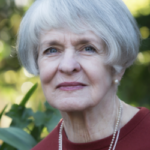Forty-four Australian servicemen have been killed in action or have died in accidents since our forces went to Afghanistan in 2001, and since the deployments to Iraq and Syria. But in that period, at least ten times that number of Australians serving or no longer in the military have died of suicide. This week, former Commander Kevin Frost was the latest.
His story became familiar when he confessed to the ABC in 2016 that he had been complicit in covering up the alleged murder of a prisoner, shot through the forehead in Afghanistan. He fully expected that for revealing this and other alleged crimes he would be severely punished. Nonetheless, he gave evidence about ADF behaviour to the Brereton inquiry, which continues. Frost did not live to see its conclusion.
The 45 year-old former Commando disappeared from his Busselton, WA home on Tuesday 10 December, and his body was found the following Saturday. This was reported on 16 December by the Daily Telegraph, which has been campaigning for a Royal Commission into serving military and veteran suicides for six months. Warriors Return reported on Facebook that 412 such suicides had occurred between 2001 and 2016. But 85 were recorded between 2017 and 2018, making the total of those known about, and counted as suicide, much higher.
Shocking and sad as these consequences of unjust war are, the way we learn about them is seriously deficient. Frost’s death was not announced by Defence or by Veterans Affairs, although a message of condolence was tweeted by former commando and Federal Labor MP Luke Gosling. Quiet is what the Prime Minister wants from the electorate. Quiet has descended over military suicides.
Even the mainstream media, which seem already to be forgetting about the Your Right to Know campaign, gave great prominence to the White Island volcano, and precious little to Frost’s suicide. Those who have quietly been waiting for reports on four related matters remain unrewarded. All located in the ACT jurisdiction, the matters are:
· The trial of David McBride. A former military lawyer, accused of leaking details of alleged war crimes to the ABC for its series ‘The Afghan Files’, knew that by stating that members of the Special Forces shot and killed unarmed civilians including children, he would face legal consequences and could get ‘unlimited’ time in jail. Representing himself, and displeased with the ABC’s version of events, he may seek to subpoena Attorney-General Christian Porter and former head of the ADF General David Hurley (now Governor-General). His defence, similar to that of Kathryn Dun in Official Secrets, is likely to be that Australian leaders did things in their self-interest that were bad for Australian security. The trial is set for March 2020.
· The trials of Witness K and Bernard Collaery. Expected to be charged with disclosing information about ASIS, their cases arose from Alexander Downer’s order to ASIS, as Foreign Minister in 2004, to bug government offices in Timor Leste during negotiations about oil and gas with Australia (a beneficiary of which would be Woodside Petroleum). ASIS officers did this, posing as aid workers, and later a senior member of the team, ‘Witness K’ expressed his concern to the Inspector-General of Intelligence and Security. On her recommendation he consulted Canberra solicitor Bernard Collaery, after which the media learned about these events. Collaery’s office was raided, his papers seized, and Witness K’s passport was confiscated to prevent them giving evidence at Timor Leste’s hearing in The Hague. K intends to plead guilty, but both men may seek the opportunity to state that they refused to condone immoral and illegal acts of government – the opposite of the Nuremberg defence. Most of the proceedings have been in secret, and whether Collaery’s case, now postponed to May 2020, will be held in open court is unknown, as are the detailed charges against him.
· An unnamed Australian soldier. Secretly jailed in Canberra in 2018, a man contacted journalist and author Robert Macklin for help in publishing his memoir, which included criticism of the Alexander McConochie Centre where he is held. Nothing further has been reported about any charges, trial, or sentence for this man, or whether he is the only such prisoner.
· Annika Smethurst and the ABC. On successive days in June 2019, ABC offices in Sydney and the home of a Newscorp journalist in Canberra were raided. One group of officers were apparently seeking sources for classified information accessed by the ABC for ’The Afghan Files’. Others wanted to know how Smethurst received classified information about the proposed extension of the powers of the Australian Signals Directorate to monitor private communications inside as well as outside Australia. Both cases turn on the validity of the search warrants used, and Smethurst’s case went to the High Court in November.
All this adds up to the consequences of speaking truth to power anywhere. In the US, people whose interests were affected apparently wanted Seth Rich and Jeffrey Epstein dead; they probably want indefinite imprisonment or death for Julian Assange, Edward Snowden, and Chelsea Manning; and now we see similar desires at work in Canberra. Justice, it seems, counts for little: no-one, those in power repeat, is above the law. Cause embarrassment to them and you will be made an example of. If slow, deliberate, unrelenting pressure has not yet killed most of the people listed here, it still could.
Dr Alison Broinowski AM is an Australian former diplomat, academic and author




